The Elder Scrolls, ranked
Every mainline Elder Scrolls RPG ranked from worst to best.
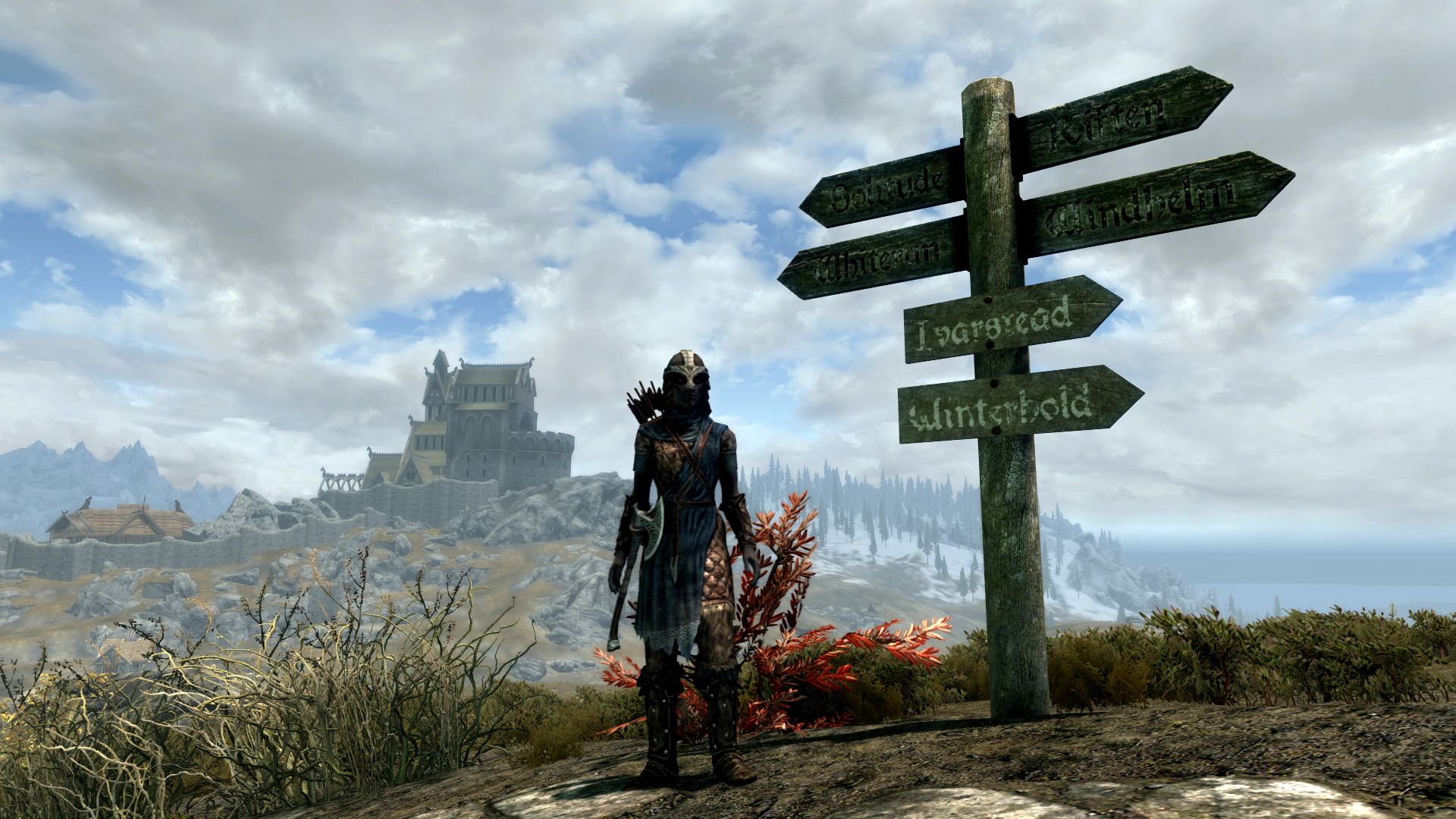
Obviously the Elder Scroll of Chim is the best, though the Elder Scroll (Blood) is certainly memorable—wait, this is supposed to be a ranking of the Elder Scrolls videogames? Silly me, I thought this was a ranking of those prophetic texts beyond the contemplation of mortal minds. I've been struck temporarily blind and permanently mad for daring to gaze on them, when I could have just told you whether Morrowind is better than Skyrim and called it a day.
Over the years the Elder Scrolls series has become a core part of PC gaming even as, following Morrowind's success on Xbox, it became more console-oriented (most noticeably, the interfaces). What makes them the kind of PC games people buy PCs to play is their modding scene, which is the most thriving in all of gaming. Thanks to its Special Edition re-release, Skyrim is the number one and the number two game on Nexus Mods. Oblivion's in the top 10, and Morrowind's not far outside it.
Part of the reason there are so many mods for the Elder Scrolls games is that people want to fix the infamous Bethesda jank—and those clunky interfaces—but there's more to it than that. Their open-ness inspires a degree of self-insertion that makes us want to change them, to add new systems and places, clothes and people.
We mod them not just to paper over their flaws, but to make them our own so we can truly roleplay in ways their developers could never anticipate. While these rankings will mostly be based on how the base games play, I couldn't let the essentialness and vitality of the Elder Scrolls' modding scene pass without comment.
5. Arena
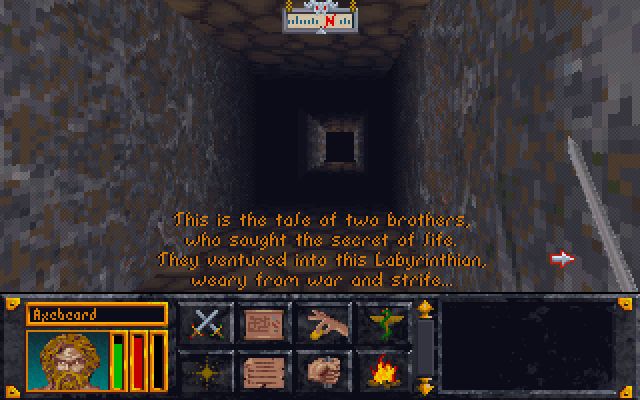
Games Bethesda Softworks made before the Elder Scrolls include The Terminator and Hockey League Simulator. They may seem impossibly far apart, but Arena actually began as a cross between the two. Though it deviated from this original idea, at its conception Arena was a game about running a team of gladiators, borrowing management systems from Hockey League Simulator, set in an open world like the Los Angeles you're chased through in The Terminator.
Obviously things changed quite a lot in development, leaving only fossils of the original idea like the tacky gladiators on the cover art, the name Arena, and a focus on combat in enclosed spaces. The Terminator-style overworld, meanwhile, grew during development to become a gigantic backdrop for dungeon-crawling across.
It's quite thin and samey though, as are the procedural dungeons generated for sidequests. The real fun of Arena comes from the bespoke dungeons designed for the main storyline quests—beyond that, Arena's most notable for the glimpses of what was to come you can see between its cracks.
Keep up to date with the most important stories and the best deals, as picked by the PC Gamer team.
4. Daggerfall
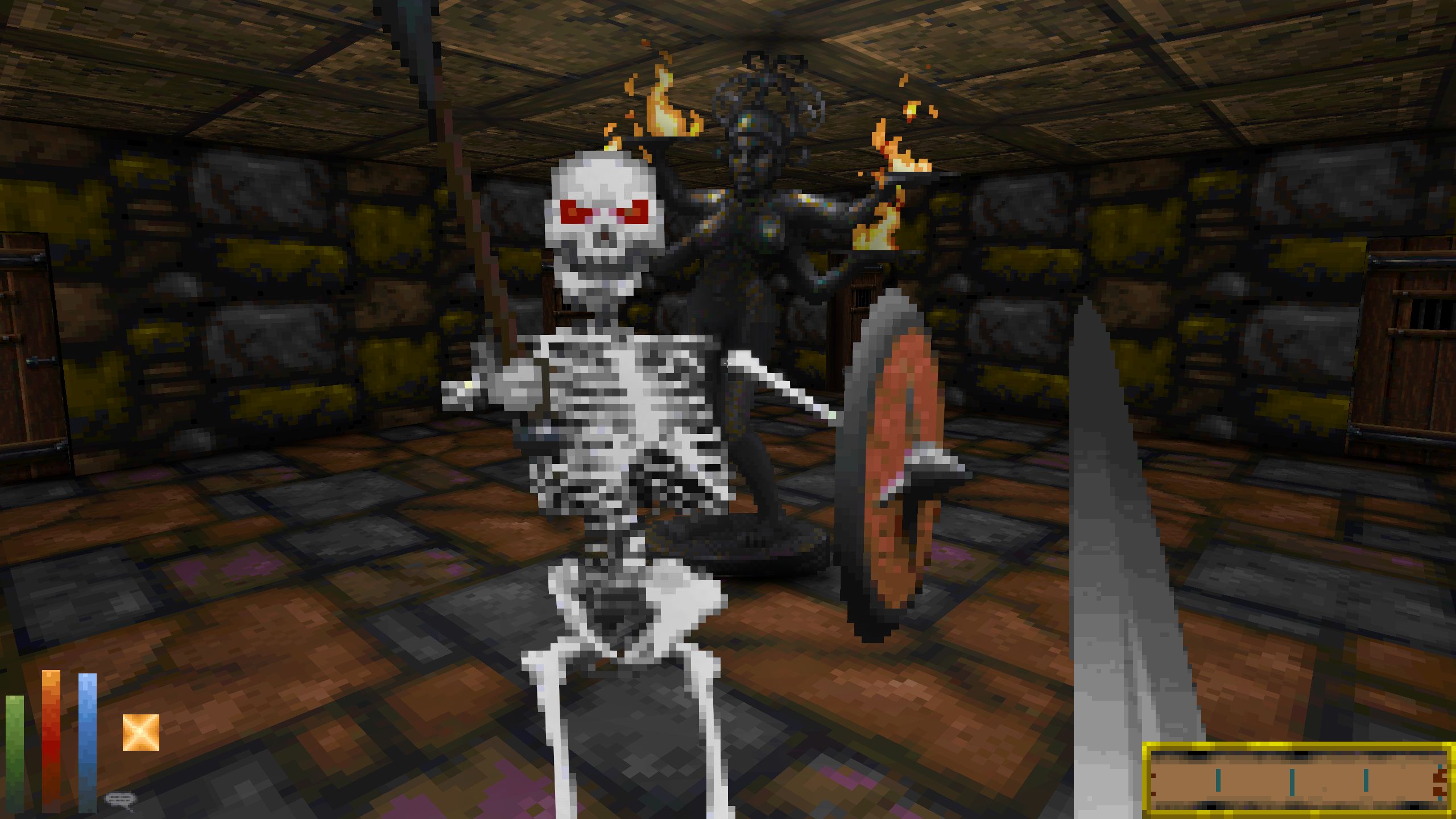
While Arena's sidequests were nothing special, players devoted enough time to them that Bethesda focused on making more of them in the sequel. In Daggerfall sidequests don't just come from innkeepers and nobles, you can take on jobs for various guilds, temples, and knightly orders, as well as the Dark Brotherhood, covens of witches, and a vampire clan should you end up joining the undead. Each one will let you rank up in the relevant organization, gaining titles and access to services like spellcrafting, teleportation, and summoning Daedric Princes who offer quests with unique artifacts as their reward.
Unfortunately, Daggerfall's quests still weren't great. Almost all of them have deadlines, meaning you have to keep track of how many days it takes you cross its enormous landmass, and if you take on more than a couple of jobs at once that's a headache. Failing those quests deducts points from your reputation, which can get you thrown out of the relevant faction—a couple of which, including the Dark Brotherhood, can't be rejoined. What's worse, those quests turned out to mostly be dungeon crawls in locations so twisty and convoluted even a mad wizard would disown them, and Daggerfall wasn't shy about including enemies you can't damage with early-game weapons. Even the tutorial dungeon threw an imp at you who you couldn't kill if you didn't randomly luck into an ebony dagger as a gift during character creation.
Daggerfall is certainly a lot closer to the Elder Scrolls as we know it today, full of recognizable names, but it was still beholden to the idea quantity was more important than quality—that endless randomized saminess was somehow more realistic than a world less believably sized, but with less repetition wherever you looked.
3. Oblivion
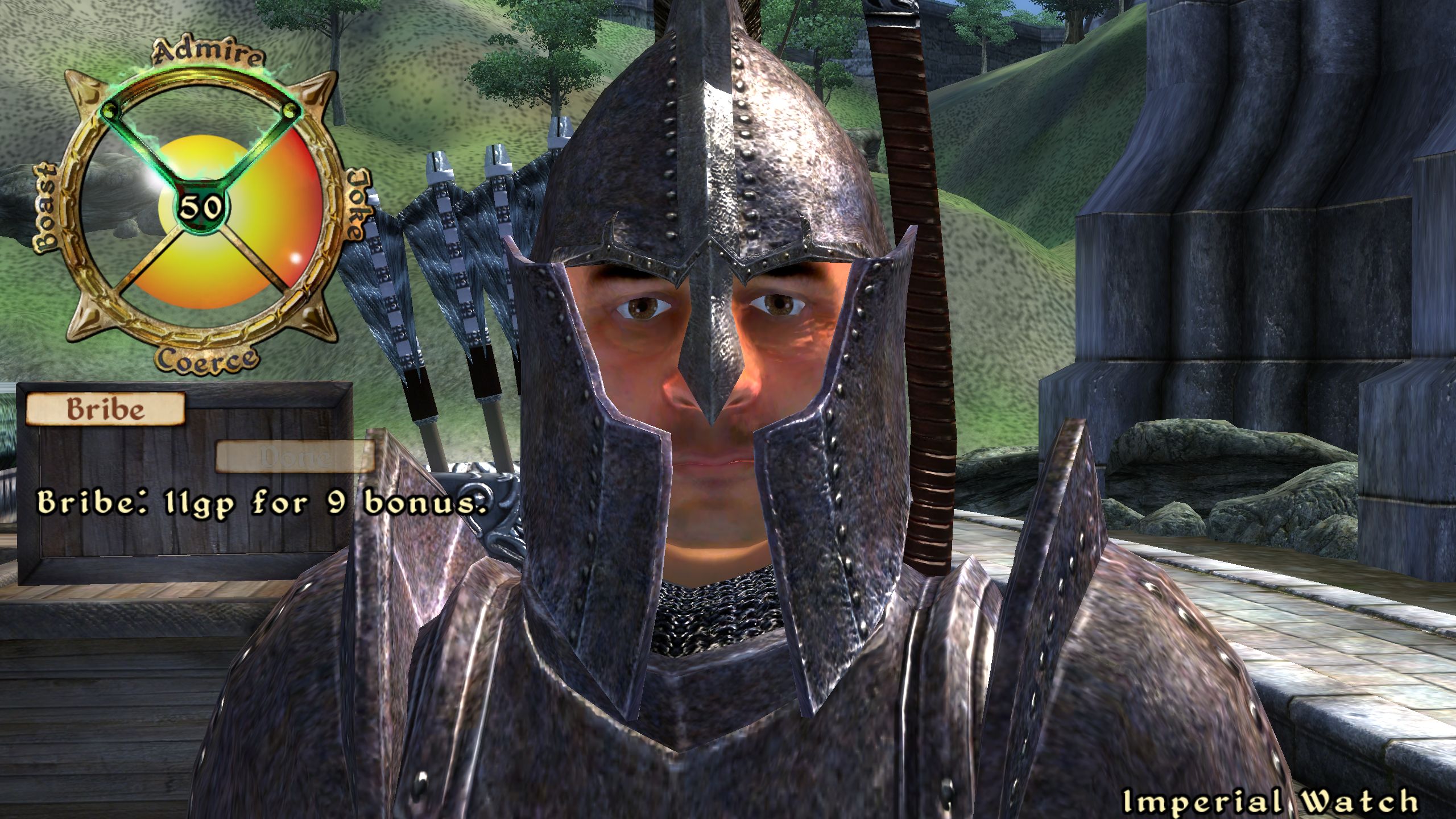
It was the best of Elder Scrolls, it was the worst of Elder Scrolls. Oblivion's Thieves Guild, Fighters Guild, Dark Brotherhood, and Daedric Prince sidequests are the best those faction storylines have ever been, constantly subverting your expectations. Even the "kill rats in a basement" beginner quest gets turned on its head when it turns out you've been assigned to protect someone's pedigree pet rodents from rampaging lions.
But Oblivion is also the Elder Scrolls at its worst. The level-scaling and progression are so broken you either have to tiptoe around them to prevent your build from being completely borked (or download a mod to replace it with a more sensible system). The main storyline is so dull it convinced people the main questline in every Bethesda RPG sucks, even though there are plenty of contradictory examples. And don't even get me started on the conversation wheel or the lockpicking minigame.
Many of the problems with Oblivion can be blamed on dubious improvements. The jump to fully voiced NPCs meant each character had less to say, and the same handful of actors played most of them. The increased fidelity of towns meant they became separate walled-off areas with loading-screen barriers—which is why spells that let you levitate or fly were removed, so you couldn't just hop over the walls and bypass the loading screens. Everywhere you look in Oblivion there's something that makes for a great bullet-point feature in the marketing, but makes the game you're playing less interesting.
The Shivering Isles was wonderful, though. With its island of weirdos and giant mushrooms where you get manipulated by a god who wants you to take part in his next myth-cycle, it was basically a condensed Morrowind. Shame the rest of Oblivion wasn't more like it.
2. Skyrim
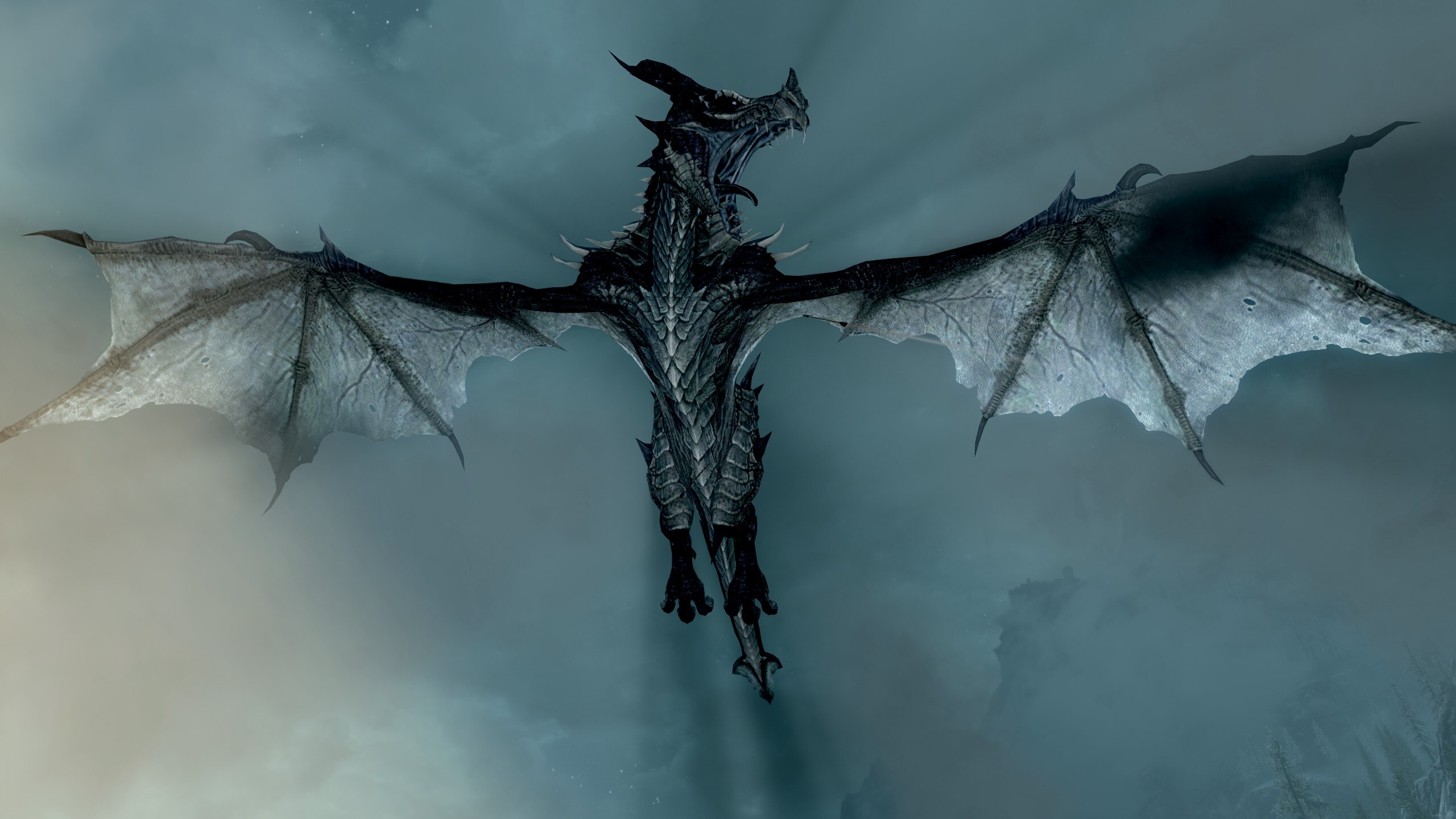
When it came out, saying that Skyrim was a very good game with some flaws was a controversial opinion to have. Don't you know Bethesda is out here saving singleplayer RPGs from the MMO doldrums with a landmark of the genre? Now, the kind of opinion that once upon a time would get you pilloried for being too negative will instead get you ridiculed for daring to defend an RPG that's since been blamed for instituting open world bloat and blandness, endlessly used as a punching bag in Dark Souls comparison thinkpieces.
It's still what I think, though. Skyrim: it's quite good actually.
The combat starts out feeling rubbish, but once you specialize and put points into the relevant skills so you can slow-mo headshot a bandit or leap forward and cleave them with a two-handed axe? That's a fun time. You settle into exploring a particular area or following a questline, digging a groove into its world and uncovering the more interesting stuff that's been hidden away so as not to freak the mundanes—the unusually dark Daedric Prince quests, trips to Sovngarde and the Soul Cairn, deep dives into the lore.
And its open world is nothing like the Ubisoft model of filling the map with repeatable activities that stun you with their shallowness. Instead, the map is full of actual places. Towns and giant camps and standing stones and dungeons. What you do with them is up to you. Unlike so many of the open worlds that followed it, Skyrim feels like a place rather than a to-do list. What initially seems like a lot of samey snowy landscape reveals regions with their own personalities. There's a reason people spend hundreds, even thousands of hours playing Skyrim, and it's not all due to the mods.
They certainly help, of course.
1. Morrowind
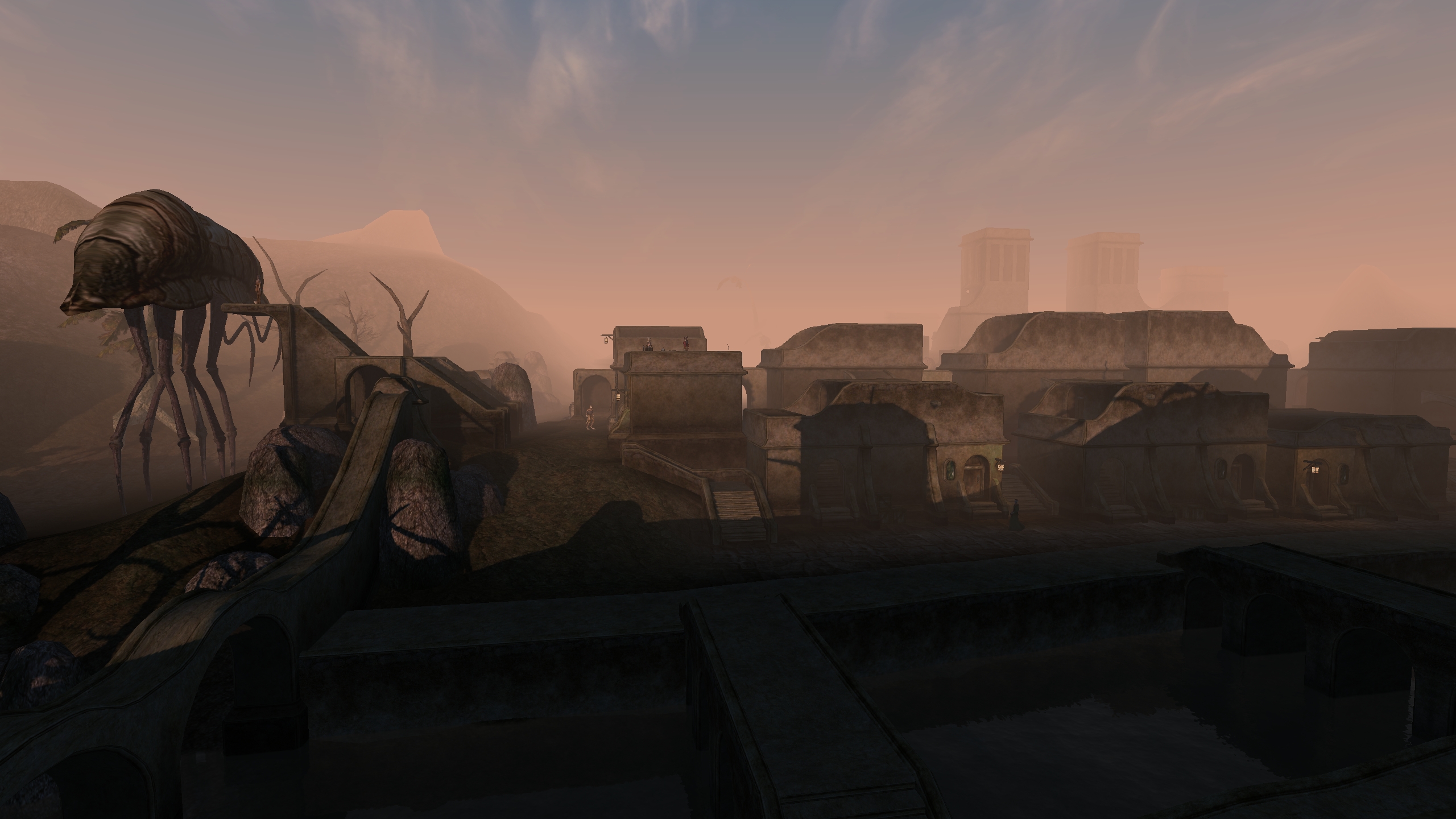
Even on a good day I struggle to remember the difference between towns in Oblivion. Which one is Chorrol and which one is Cheydinhal? But I remember that all the fancy people in Morrowind's Ald'ruhn built their homes inside the hollowed-out shell of a giant crab, and that Vivec's a city of cantons built in a bay with a stationary moon hanging just above it. I even remember the ordinary fishing village of Hla Oad. Morrowind is memorable even when it's not being architecturally outrageous because its culture is as weird as its geography.
That's part of what makes its opening hours off-putting, of course. New players spend a lot of time trying to remember what all the words mean, what the difference between Divine Intervention and Almsivi Intervention is, and why all the NPCs hate them. The thing is, Morrowind is a game about people struggling to understand their world, with its messy history, clashing cultures, and squabbling religions. The exiled ashlanders, the ruling houses of the dunmer, the incoming Imperial colonizers, everyone has their own truth. Eventually you'll get to meet some of the people behind the myths—a warrior-poet god, the last of the dwemer—and probably come away with even more questions.
Morrowind was avant-garde and weird in a way the Elder Scrolls has only rarely been since, and rewarded analysis and theorizing of a kind that's less welcome these days. One of the best things about Morrowind is that it inspired The Metaphysics of Morrowind and essays about the 36 Lessons of Vivec and The Literary Achievement of Morrowind. But even if you don't find yourself blogging about Morrowind, you're still thinking about it when you're not playing it. The main questline is all about the process of mythmaking—you may be the prophesied chosen one, but even if you're not it makes great propaganda—so it's apt that Morrowind made us want to mythologize it.
The cliff racers can go and do one, however.

Jody's first computer was a Commodore 64, so he remembers having to use a code wheel to play Pool of Radiance. A former music journalist who interviewed everyone from Giorgio Moroder to Trent Reznor, Jody also co-hosted Australia's first radio show about videogames, Zed Games. He's written for Rock Paper Shotgun, The Big Issue, GamesRadar, Zam, Glixel, Five Out of Ten Magazine, and Playboy.com, whose cheques with the bunny logo made for fun conversations at the bank. Jody's first article for PC Gamer was about the audio of Alien Isolation, published in 2015, and since then he's written about why Silent Hill belongs on PC, why Recettear: An Item Shop's Tale is the best fantasy shopkeeper tycoon game, and how weird Lost Ark can get. Jody edited PC Gamer Indie from 2017 to 2018, and he eventually lived up to his promise to play every Warhammer videogame.

